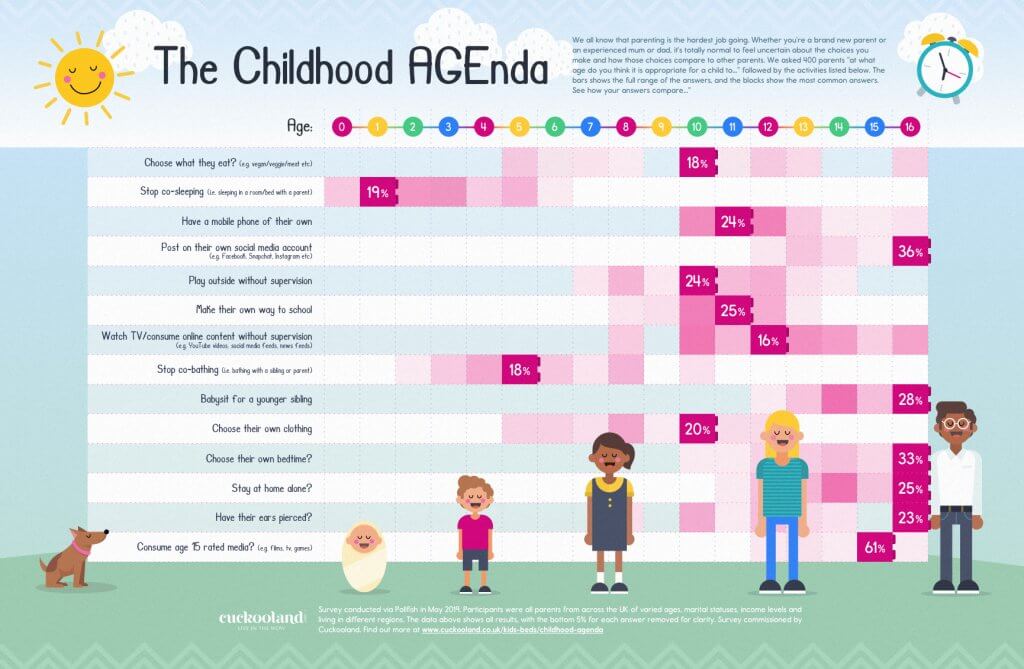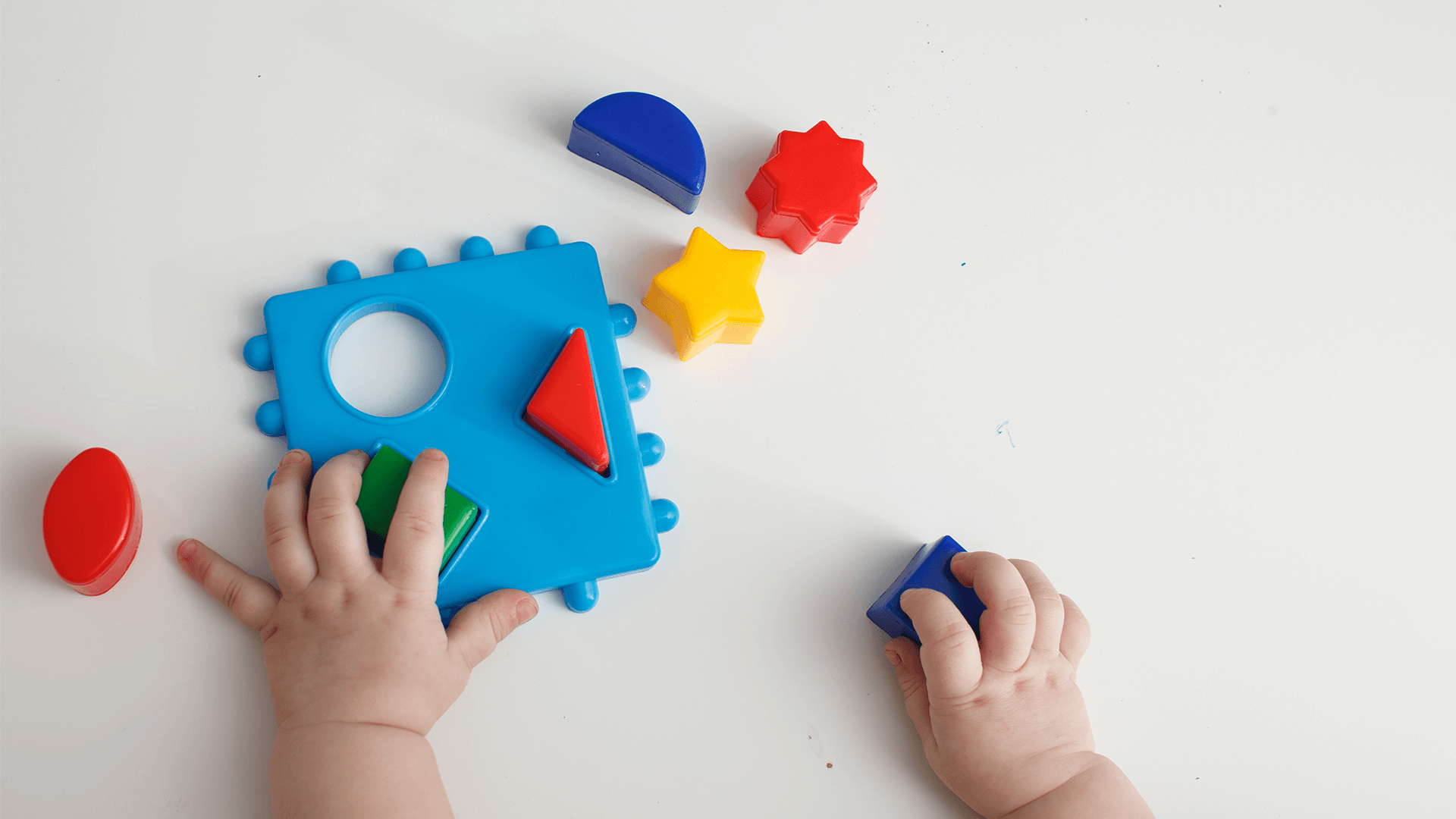As parents, we can all agree that there is rarely a ‘right’ or a ‘wrong’ answer when it comes to developmental milestones. We understand that each child is different and, though health advice exists to indicate where there may be issues, on the whole we focus on supporting our child in the way that’s best for them.
It is, however, always interesting to know what other mums and dads are doing. When making our own decisions, we can often be influenced by those around us and the decisions they’ve made in understanding how far off the ‘norm’ we are.
These comparisons often happen at parent and baby groups, or at the nursery/school gates. Now, though, a new study has been conducted to showcase parental opinions across a number of milestones – revealing the most common ages at which parents felt it appropriate for kids to do certain things, and also showing the level of agreement (or not) between parents.
The research, conducted by kids’ bed specialists Cuckooland, asked parents to state the age at which they felt it appropriate for children to be allowed to do certain things. It shows that there are some topics where parents are, on the whole, in agreement because the range of answers given is quite small, while other topics are clearly still subject to disagreement, with answers ranging from very young to much older. The graphic below shows all of the results, including most common age suggested and the overall range of answers given:

Areas in which parents agree
The areas in which parents agree most strongly, according to the study, were:
- Social media; parents suggested age 16 was the most appropriate for children to post on their own social media channels, though answers ranged from 12-16
- Babysit for a younger sibling; parents agreed age 16 was the age at which kids can be trusted to babysit a sibling, though answers ranged from 12-16
- Consume age 15 rated media; most parents, unsurprisingly, felt age 15 was the most appropriate age for this, with answers ranging from 12-16
The study suggests that milestones which are agreed to be reserved for older children have the least disagreement across parents.
Areas in which parents disagree
On the flip side, there were a number of areas where parents strongly disagreed with one another, as shown by a broad range of answers when asked for the most appropriate age at which the milestone should be reached.
The areas in which parents most disagree, according to the study, were:
- Diet; parents couldn’t agree the age at which they’d allow their child to choose their own diet (e.g. vegan or vegetarian), with answers ranging from as young as 5 to as old as 16
- Clothing; the age at which parents would allow their child to choose their own clothing ranged from 5 to 12
- Have their ears pierced; here, answers ranged from 8 to 16
- Consume online media without supervision; again, answers ranged from 8-16, suggesting a real lack of agreement across parents
What should we learn about childhood development from this study?
As parents, we know that we can only do our best for our child. But it’s still interesting to know where other parents agree with us, and where they do not.
On development milestones relating to technology, there is a clear agreement that older is better. A recent report from Ofcom showed that a growing number of children under the age of 11 are posting on social media, in spite of many platforms setting a minimum age of 13, which suggests in itself that, even when parents agree that kids should wait, their kids are making their own decisions – reiterating the need for technological education.
Conversely, milestones relating to choice of diet, clothing and stopping co-sleeping are still very unclear in the common parental consciousness. Some parents, for example, will ask their children wait until the age of 16 to make dietary choices, while others allow it from age 5.
The bottom line is that, we as parents, need to do what’s best for our kids but that this research provides us support in understanding the choices other parents make.












































